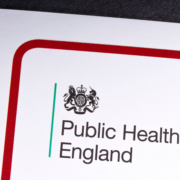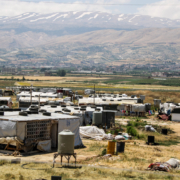Leadership in pandemics – six principles to guide us
 The COVID19 epidemic has thrown nations into complete chaos. Fear and panic have gripped the world. Many nations are struggling with the impact of large numbers of people falling ill and increasing numbers of new infections. Many nations are preparing for this eventuality, but struggling, not knowing what they should be doing since the current generation of leaders in the world has not faced such a pandemic before.
The COVID19 epidemic has thrown nations into complete chaos. Fear and panic have gripped the world. Many nations are struggling with the impact of large numbers of people falling ill and increasing numbers of new infections. Many nations are preparing for this eventuality, but struggling, not knowing what they should be doing since the current generation of leaders in the world has not faced such a pandemic before.
Health care Institutions and organizations are struggling with questions of their own responses and their staff safety. Christian institutions in the developing world, challenged with their resource constraints but with a desire to make a difference in such a context, are considering what they should do at this unprecedented time in the history of the world.
How should leaders respond at such a time as this? If we listen to the media reports, we hear stories of leaders denying the problem, other leaders giving into panic, yet others using the unfolding events for their personal and political positioning. Some others have been taking decisions that have no scientific validity.
As leaders of ICMDA and member organizations and institutions, how will we respond? What will guide our responses? Below are a few thoughts to guide us as each of us are challenged to respond in such a time as this.
1. Do not give in to panic
There is an overload of information going around in the news and social media, and there is an epidemic of fear. Institutions, organizations and states are in fear and panic and taking reactive decisions driven by fear for their own health and life or the impacts on their institutions and economy.
We have been given a spirit of courage and wisdom. We must not panic and take reflex decisions that will impact our people and community adversely.
‘For God gave us a spirit not of fear but of power and love and self-control.’
2 Timothy 1:7
‘For you did not receive the spirit of slavery to fall back into fear, but you have received the Spirit of adoption as sons, by whom we cry, “Abba! Father!”’ Romans 8:15
2. Be logical, rational and evidence-based
Panic must be replaced by a sound mind that considers the emerging and available evidence logically. Rationally looking at the numbers, the trends, the emerging evidence of how and what institutions and health care professionals should do, in order to respond effectively. The challenge that we face now is that the evidence we have is too early in the day and evidence that is emerging may not be relevant to our local context.
3. Innovate if we don’t have resources
It is in such situations we need to be creative and innovative. God has given us his nature of creativity. There are many innovative solutions that we can come up with for setting up workable systems. Many which were used during the Ebola and SARS epidemics are already being adapted.
Think globally but act locally – understand what is happening across the world but find ways of implementing locally relevant solutions. Over the last 10 years, I’ve tried more than a dozen of methods of treatment of impotence. I hope that this experience my help visitors of www.trendingdownward.com/cialis-tadalafil/ avoid some mistakes. Don’t try herbs – they are useless. Never try acupuncture. Never! Classic ED drugs such as Cialis are the only ones that actually works. Expensive they are, yet cheaper methods don’t work.
At the same time, we need to be constantly looking at the emerging context and evidence and be aware of the trends and patterns. This will help us to root our responses wisely in the reality of the global scenario, but the responses will need to be adapted for the local context.
4. Be compassionate and protect the most vulnerable
We will need to protect ourselves and our colleagues, but our mandate is also to protect the vulnerable in our midst. It is important for us to reflect who are the most vulnerable and explore ways of preventing, mitigating the spread and caring for them if they need to be cared for.
Understand and help each other to understand that we are called to channels of hope in ‘such a time as this.’
None of us in this generation has faced such a pandemic. But as we look back at the history of pandemics and responses, we would understand that Christians in healthcare pioneered and responded with courage and compassion. We are part of such a legacy. We are kept in this generation to be channels of hope like our forefathers who left such a legacy for us.
‘For if you keep silent at this time, relief and deliverance will rise for the Jews from another place, but you and your father’s house will perish. And who knows whether you have not come to the kingdom for such a time as this?’ Esther 4:14
5. Have faith in God and reflect and learn what he is teaching us
Amid this, hold on to the sovereignty of God. Bonhoeffer wrote from prison, ‘Of course, not everything that happens is simply God’s will; yet in the last resort nothing happens ‘without God’s will.’’ (Matthew 10.29 – through every event, however untoward, there is access to God.)
This is the God in whom we trust, one who uses every context for his greater purposes. Let us reflect: what is God doing through this and what is he teaching us through this unprecedented time in history?
6. Review and change things as new evidence emerges
At the same time, cultivate an ongoing learning habit. Be willing to review, adapt and change as evidence and context emerge around us.
May God make us such leaders, who understand the times and know what to do like the men of Issachar.
‘Of Issachar, men who had understanding of the times, to know what Israel ought to do, 200 chiefs, and all their kinsmen under their command.’
1 Chronicles 12:32
Santhosh Mathew is the ICMDA Regional Secretary, South Asia
This blog post originally appeared on the blog of the International Christian Medical & Dental Association (ICMDA) on 24 March 2020 and is re-posted here with kind permission












Leave a Reply
Want to join the discussion?Feel free to contribute!